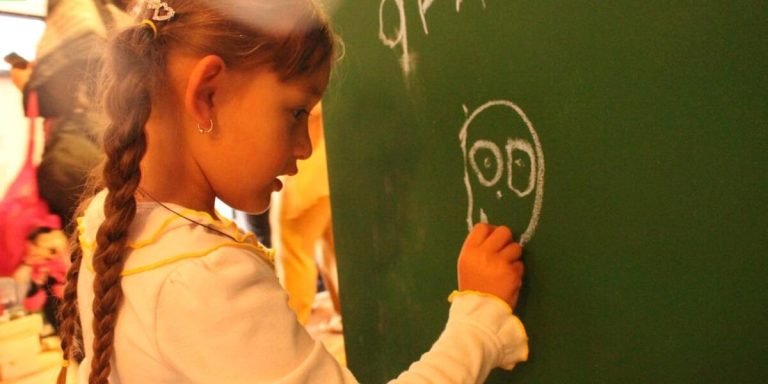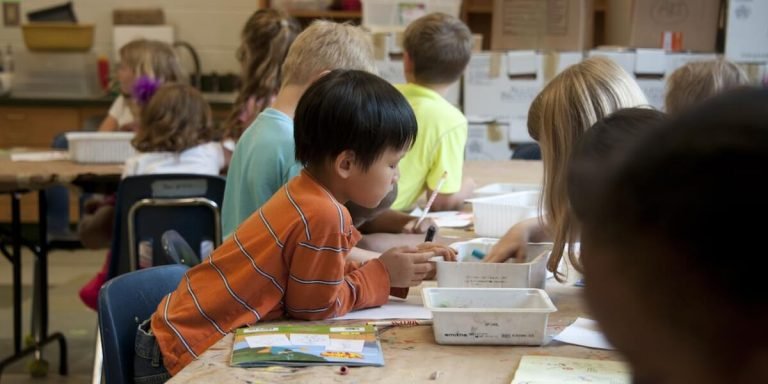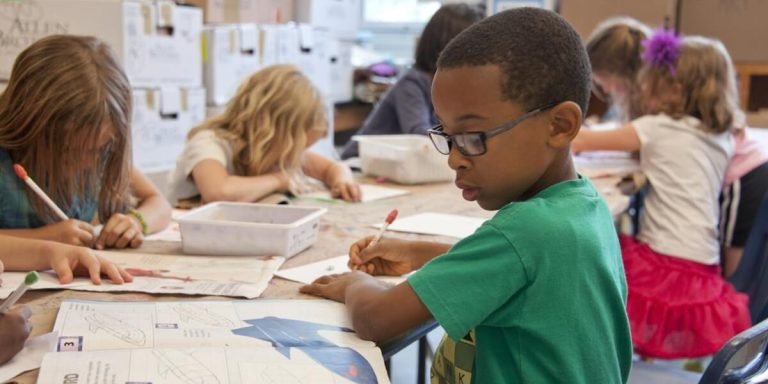Teacher Conferences: A Necessity for Child Development and Academic Success
Teacher conferences hold a crucial role in child development and academic success. These meetings serve as an opportunity for educators to share updates on the student’s progress, discuss any concerns they might have, and work together with parents to create strategies for further improvement. Understanding what transpires during teacher conferences is key in bolstering the overall educational journey of your youngster.
Parents’ active involvement can hugely impact their children’s schooling experience positively – one way being through regular participation in teacher conferences. As focused discussions about a child’s strength areas or places that need reinforcement occur, it enables both parties to provide mutual support while forming stronger bonds between home and school environments which eventually lead towards better learning outcomes.
Did you know?
According to Harvard’s Family Research Project, parents participating in teacher-parent conferences can improve their children’s academic performance and behavioral skills by up to 30%.
The Role of Parent-Teacher Conferences in Student Success
Parent-teacher conferences serve a pivotal role in fostering student success, particularly when it comes to technology integration in education. In 2023, as digital access and literacy become increasingly vital for every aspect of life, these conferences offer an indispensable platform for mutual understanding between all key parties involved.
During parent-teacher meetings, educators have the opportunity to elaborate on how they integrate technology into their teaching methods. They can explain intricate software or applications used during lessons that enhance interactive learning environments. Parents gain valuable insights about these contemporary educational tools and can better support their child’s tech-enabled academic journey at home.
Furthermore, teachers also benefit from hearing parents’ feedback regarding how well children adapt to using such technologies outside school settings. This exchange empowers both sides with essential information – educators learn how effective their strategies are while parents understand more clearly what is expected of children within this rapidly evolving digital landscape.
The Role of Parent-Teacher Conferences becomes progressively significant amidst our fast-moving technological era—bridging gaps by creating dialogue around classroom expectations and developing shared goals towards harnessing the power of advanced ed-tech solutions efficiently for optimal student results.
In conclusion,the effectiveness and importance of technology-integrated pedagogy rely heavily not just on its implementation but also establishing open lines communication between those who shape young minds – teachers and parents alike– facilitated through structured interactions like teacher conferences .
Understanding the Importance of Collaboration Between Parents and Educators
With technology integration revolutionizing the field of education, parents and educators must collaborate more closely than ever. Keeping it in current context, which is 2023, let’s delve deeper into this topic.
The term “Parent Educator Support,’ or PES for short has gained popularity over recent years. It stands as a testament to how parent-educator partnerships can impact student’s success positively.
Teacher conferences provide an ideal platform where collaboration between parents and teachers takes form. These scheduled meetings allow educators to share their insights about students’ academic performance while learning key information from parents that might support enhanced teaching styles.
Parents bridge the gap between home-study environments accentuated by cutting-edge educational technologies like online classes or digital workshops; they help translate lessons taught during teacher-led sessions at schools seamlessly integrating them within domestic atmospheres thus encouraging reinforcement of classroom learnings.
Using real-time audiovisual platforms such as Skype or Google Meet brings a whole new dimension to traditional face-to-face teacher conferences now becoming virtual exchanges spanning across geography proving helpful specially amidst pandemic-induced remote-learning phase we just experienced few years back around 2020s.
Strategies for Effective Communication During Teacher Conferences
are a critical aspect of building partnerships between parents, educators and students. In the era of technological advancement we live in this year, 2023, it’s even more crucial to implement these strategies effectively.
Firstly, both parties involved must prepare thoroughly before teacher conferences. Parents should be familiar with their child’s academic progress while teachers should have details about the student’s classroom behavior and achievements.
Secondly, ensuring that every meeting begins on a positive note can establish an open dialogue environment right from the start. Highlighting a specific improvement or achievement by the student could set up this stage perfectly.
Additionally, active listening is invaluable during these discussions. Teachers need to listen attentively to any concerns raised by parents without interrupting them midway through their sentences; similarly,,parents too should give teachers adequate time and space to provide detailed insights into their child’s performance in school.
Enhancing Learning Outcomes Through Educational Partnerships
Establishing and maintaining educational partnerships can greatly enhance learning outcomes, especially when it comes to integrating technology in education. This involves collaboration between educators, parents, tech-companies and the greater community. Through these strategic alliances that are formed at teacher conferences across the globe – where all stakeholders can exchange ideas on how best to use digital tools for instruction – schools stand a better chance of effectively utilizing today’s advanced technologies.
While developing said partnerships may seem challenging given time constrains or lack of technical savvy among participants involved; ongoing communication about shared goals has proven key to surmount these hurdles. By focusing on common objectives such as improved student engagement through innovative teaching methods or fostering critical thinking using interactive software applications – parent-educator support networks form naturally making this task far less daunting.
These symbiotic relationships also offer fresh perspectives from different players within the mix as well voices from students themselves who are ultimately users of integrated technological systems hence further enriching curriculum development process with diversified inputs thereby creating an inclusive direction towards futuristic pedagogy grounded in 2023 realities.
Preparing for a Productive Teacher Conference: A Guide for Parents
Teacher conferences are an integral part of every child’s educational journey. They provide the perfect opportunity for parents and educators to collaborate, discuss progress, address concerns, and devise strategies for improved learning outcomes.
Make teacher conferences more productive in 2023 and beyond by coming prepared not only with a list of queries or concerns but also with insights into your child’s strengths and weaknesses. Here are some crucial steps to take:
1. **Understand Your Child:** Spend time observing how your child learns best; gauge their interests and areas they struggle in—these could be academic subjects or social skills.
2. **Write Down Observations:** Taking note of changes helps keep track better during meetings because memory might fail when under stress.
3. **Know The Agenda:** It’s helpful if schools share the conference agenda beforehand letting the participants know what will be discussed like grades, behavior issues etc.
5.Weigh In On Possible Challenges: If past experiences point towards possible hitches like communication gaps between school-home then plan wisely with alternative solutions.
6.Research Current Trends : Read up on contemporary teaching methods or technology integration that has been done elsewhere successfully–these could help enhance learning outcome right from home!
Maximizing Impact: Teachers’ Approaches to Engaging with Families
As public school programs become more complex and technology-driven, teacher conferences play a significant role in the educational landscape. Today’s teachers are finding new ways to engage with families by maximizing their impact through community-oriented efforts.
The first step is personalization. Teachers create an environment that focuses on individual learner needs during parent-teacher meetings. They dive deep into each student’s performance using various technological tools like learning management systems (LMS) or academic apps, providing insights parents may not get at home.
Secondly, fostering open communication lines between teachers and parents has never been more crucial in 2023 than ever before. Regular updates about students’ progress allow both parties to form actionable strategies focused on improvement areas together effectively—a team approach towards education helping amplify results manifold times.
Moreover, empowering parents who are less acquainted with evolving ed-tech trends will pay rich dividends long term—free webinars addressing common issues faced while navigating online portals further aids this cause significantly; reinforcing confidence amongst all stakeholders involved thereby leading to better overall outcomes collectively eventually even outside classroom walls!
Navigating Challenges and Solutions in Parent-Educator Interactions
Navigating through the challenges and finding solutions for effective parent-educator interactions has become a key area of focus in today’s technologically advanced educational landscape. Teacher conferences, once limited to traditional face-to-face meetings, have transformed significantly with technology playing an integral role. In 2023, video conferencing tools such as Zoom or Google Meet are just a click away from providing virtual platforms where conversations about children’s progress can happen seamlessly.
However, these technological advancements don’t come without their sets of difficulties. While being efficient and time-saving on one hand, they often mark communication barriers due to tech illiteracy or internet connectivity issues on the other hand. Henceforth arises the need for both parents and educators alike not only to embrace but also adapt themselves sufficiently well so that this digital divide does not hinder any child’s education.
Similarly when it comes down to solving issues surrounding Parent-Educator support dynamics,the need is two-pronged; one involving literacy around using technology itself while second focuses on forming guidelines which ensure regular exchanges between teachers and parents remain fruitful yet non-invasive – A balance difficult but necessary! This may entail having scheduled weekly meet-ups over call/screen sharing sessions discussing each student’s individual learning path ensuring their holistic development adapting with changing times.
Addressing Common Obstacles in Scheduling and Conducting Teacher Conferences
In this digital era, the evolution of technology integration in education has transformed interactions between parents and educators. A crucial part of these communication methods revolves around teacher conferences. However, several potential roadblocks might hinder successful scheduling and conduct of these essential meetings.
One significant challenge often encountered is time constraint. With teachers juggling multiple responsibilities within a packed school schedule, finding a common convenient slot for all parties involved can become an arduous task. To tackle this issue effectively, consider utilizing modern technological offerings such as virtual conferencing tools that allow flexibility to attend meetings from any location at agreed upon times.
Distance or geographical barriers are another hiccup that could affect attendance at teacher conferences in 2023. Today’s global landscape features students hailing from various locations worldwide who engage online learning due to pandemic situations or personal preference.
In such instances again, leveraging technology platforms capable of connecting people across borders may provide the necessary solution by enabling virtual face-to-face conversations while keeping safety precautions intact.
To enable efficient discussion threads without disruptions into side topics; it would be wise to implement structured agendas shared beforehand through email notifications generated by smart teaching software applications integrated with schools’ management systems .
Matching expectations forms one more possible obstacle—parents anticipate getting detailed feedback about their children’s performance , whereas educators aim to cover key issues within limited meeting slots available . This divergence can result into unsatisfactory conference outcomes unless addressed wisely .
Innovative Methods to Strengthen Home-School Connections
In an era where technology governs almost every task, home-school connections should not be left behind. Meeting parents during teacher conferences is a traditional approach to sharing students’ progress but it’s time we leverage the power of technology, especially in 2023 when virtual platforms have made communication seamless and efficient.
Integrate tech tools into your regular interactions with parents to strengthen these links.
1. Utilize Online Portals: School portals or apps provide real-time updates on children’s academic performance and school activities that allow parents access at their convenience.
2. Virtual Meetings: Video conferencing software makes it simpler for busy professionals who can’t always do face-to-face meetings, making parent-teacher discussions more flexible.
3. Social Media Channels: Create private groups dedicated strictly for classroom updates which are easily accessible from any place at any time.
Amplify channels of communication effectively, but consciously sustain the integrity of educator-parent interactions. Consider these innovative yet simple practices:
• Familiarization Sessions: Conduct periodic online webinars or sessions apprising people about using various digital platforms effectively used by schools nowadays could significantly improve engagement levels considering its necessity in our post-pandemic world.
• Regular Updates And Feedback Spaces On Digital Platforms – Offering spaces on digital mediums where both parties can share feedback ensures maintaining open lines between all stakeholders involved.
Conclusion
In the grand scheme of childhood education, teacher conferences stand as an effective scaffold on your child’s path to academic success. They help weave a tight-knit connection between educators and parents, fostering a collaborative environment that prompts constructive feedback exchange about emotional growth, social development and cognitive progress in children.
So let not these invaluable opportunities slip through the cracks! We invite you to explore our website where we unravel more insights about nurturing young minds effectively along with tips for teachers and parents alike. Remember, educating is never done alone—it’s always a team effort!
Keep browsing around; together we can make each learning journey exceptional.







